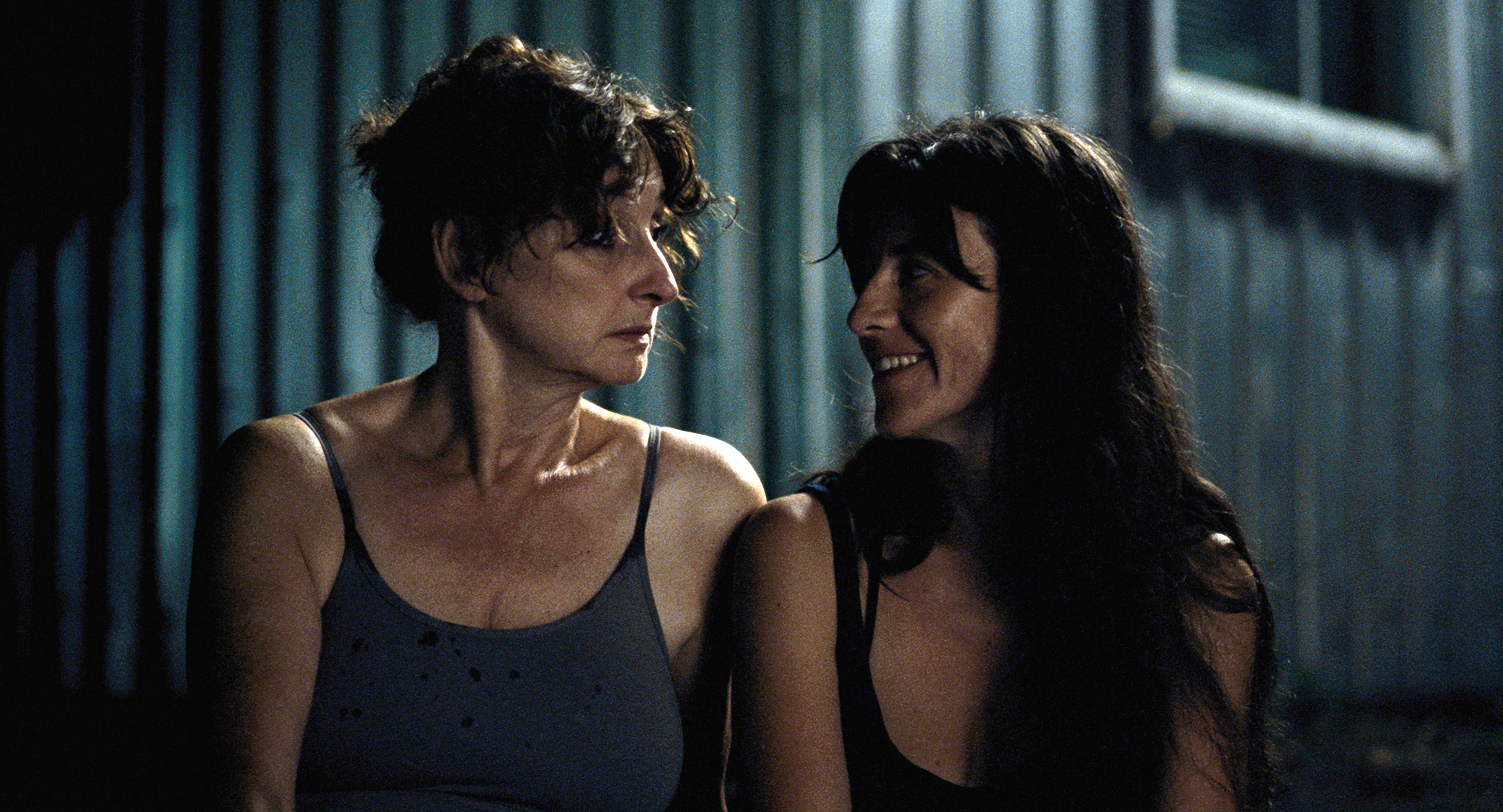Vic + Flo Saw a Bear
Runs Fri., March 14–Thurs., March 20 at Northwest Film Forum. Not rated. 95 minutes.
French-Canadian director Denis Cote has described his method as an attempt to create a “no-comfort zone for the audience” that leaves the impression “that a film can fall apart at any second.” That’s a fair description of Vic + Flo Saw a Bear, which sustains the sense that—even in its most mundane moments—something extremely odd is about to happen. When something, at long last, truly horrifying occurs, it’s a confirmation that this little patch of the Quebec woods might not be far on the map from Twin Peaks.
Victoria (Pierrette Robitaille) has come to the forest after her release from a serious prison sentence—what her crime was, we don’t know. She shows up at her comatose uncle’s home and announces that she will now be taking care of him, an act that irritates the neighbors who’d been tending the old man. Vic is 61 and ready to live in this remote place, but her younger lover Florence (Romane Bohringer) is not so content when she arrives. Their relationship becomes rockier as the film drifts along, and an unexplained issue from Flo’s past doesn’t help matters. They receive a peculiar level of scrutiny from Vic’s parole officer (Marc-Andre Grondin), a stern young man of unexpected depth, and from an unnervingly cheerful local (Marie Brassard), whose demeanor in these backwoods is markedly different from that of the other unwelcoming neighbors.
Cote is a former film critic whose demanding output includes the haunting Curling (2010) and the eerie observational documentary Bestiaire (2012). Vic + Flo makes for compelling viewing, although the final 10 minutes invite audience backlash (or at least heated conversation), despite a strangely comforting last-minute coda. Is Cote finishing his film with a disturbing left turn for its own sake, or are we watching a fable about the way the past catches up to people? If the latter, Cote isn’t going to spell out what the past was. At first glance that seems like a perverse storytelling strategy, but maybe not. There’s only the present, and the way people treat each other, and how behavior eventually captures people in traps of their own devising.







